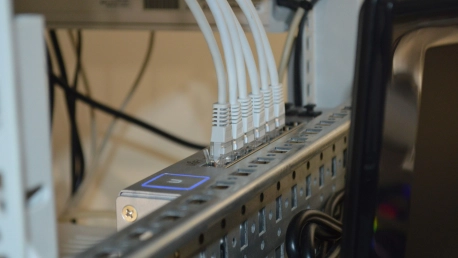The FCC’s revival of Title II regulations to ensure Net Neutrality has sparked intense debate among legislators, industry experts, and the public. This policy change marks a departure from the previously less stringent approach, leading to concerns about its effects on the progress and competitiveness of internet infrastructure. Proponents argue that it safeguards fair access, whereas opponents fear it may stifle innovation and investment. The discourse around these regulations underscores the struggle to balance robust internet growth with the maintenance of an open and equitable online environment. This reprioritization of Net Neutrality through stronger oversight brings to light the ongoing contention surrounding the governance of the digital landscape, highlighting the challenges in aligning varied interests within telecommunications policy.
The Resurgence of Title II
For years, the internet thrived under a deregulatory framework which favored minimal interference from federal and state entities. This aided in cultivating an environment ripe for innovation, leading to an era where the U.S. saw the birth of the world’s most influential tech companies and AI advancements. The FCC’s recent reinstatement of Net Neutrality under Title II is grounded in the belief that internet access should be regulated similarly to other utilities. Proponents argue that this is essential for maintaining a fair and open internet, while critics see it as unnecessarily applying outmoded regulations to a dynamic and evolving sector.The application of Title II seeks to classify broadband as a public utility, a transition which could significantly alter the current landscape of internet service provision. Those in favor see this as a protective measure ensuring equal access to online content without discriminatory practices by providers. However, many industry leaders argue that this sweeping change serves more to curb the incentives for continued network investments and innovations. The increased regulatory oversight and bureaucratic complication may introduce barriers for new market entrants and impede the advancement of technologies.
Legal and Economic Implications
The FCC’s move to regulate the internet under Title II, designed for traditional telephone service monopolies, is controversial, with critics saying it may exceed what Congress intended and lead to persistent litigation that could hamper innovation. There’s unease that such regulation may raise compliance costs, deterring investments in critical infrastructure, notably affecting smaller providers. Larger ISPs may become overly cautious, potentially inhibiting innovation and raising consumer prices. The economic concerns are as heated as the legal ones, with opponents warning of potential harm to industry growth. As challenges to the FCC’s decision progress through courts and Congress, the outcome will be pivotal for the future of internet freedom, innovation, and U.S. economic development. The Net Neutrality argument, reignited, has impassioned supporters on both ends, destined to influence America’s digital landscape.









